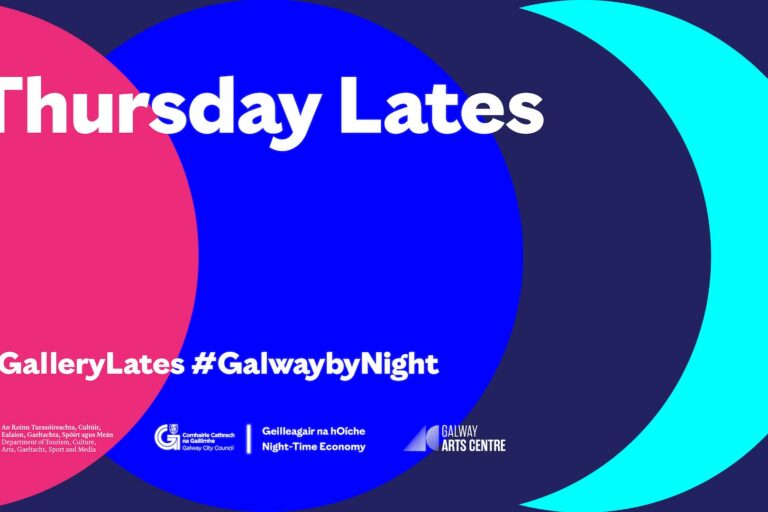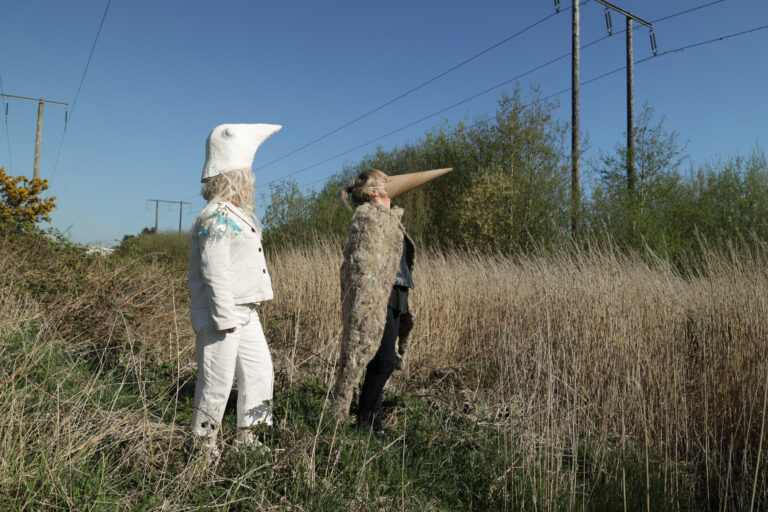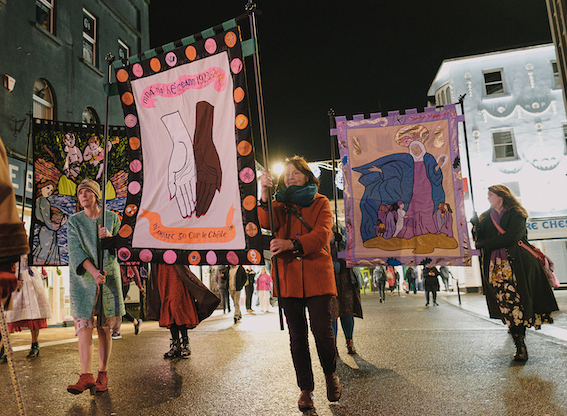Event Details
Dates
13/11/2008 – 13/11/2008
Flight from Dublin. Square Tales of New Age.
Wacław Grzybowski
I.
November the fifth, five a.m., Dublin airport; I stare vacantly into
the dark before me, the black rain from over bogs behind the page of the
glass screen in the waiting lounge, starry sparks of neon lily radiance
reflected in the drops growing pregnant for a slow arduous climb down
the nocturnal cliff. Further in the thick dark, small incomprehensible
lights, some still, some moving with surprising ease opening empty
spaces amid the thick black.
Behind me a woman and her son of thirty something, sitting, talking
Polish, my strange tongue of unemployed invaders, flame hissing, grass
dry-juicy. They try to hide their silent effort to persevere and to go
on against the rouge waves of news and taxes, under cover of casual
night talk, as if in the lamp-lit kitchen over a homely cup of coffee
fragrance.
To save me from sleepless dreams I never drink coffee after dark. An
imperfection of my liver, or perhaps of heart. Instead over my palate I
roll my big sister tongue of a liberal good wife’s tale which flows on
the air of something moving swiftly, flickering, smoothly going by the
traps of so-called nature, the holes of absence and shortage.
Crucifixion, or say, spread-eagled arms, words, thoughts, feel, see.
In-between one nail hole and the other, spread-eagled. Indeed,
spread-eagled am I, metaxy, in-between the black bog deep and the vine
sky.
II.
Whispers of the black rain behind the glass screen sound like spells of
shadow lips. Yet I do not know how to read what I cannot hear or see,
the dark bog speech. Homeless they have come to seek employment as usual
at night. They seem not to care the airport quarters admit no one after
five. They seek a different job, that of memory, guardians of kieran
fahey, midnight on the water. “Remember us?” They seek attentive ear
and the flight they missed hindered by a secret of the rock heart. They
press their starving moth-like eyes against the wet window, flashing
back neon beams in sparks of rain drops, to speak their misty elvish
tongue with mouthfuls of black peat, thirsting for the red-white drops
of the pierced footprints in-between bone stiffness and swamp suction.
Four days after Samhain, now it falls on me to remember them, so I bow
my head pretending to be listening. But I can only wish I could
understand the dark music of their forgotten verses. I can only slip the
dripping beads of pity. The flaming tongue of prayer they will
understand, for it is there to bid a step, a mile, a league closer, in
the nuirt of Your footsteps through agony, to the gate of the
spread-eagled flight into the boundless Heart.
Grant them, grant them, grant them ?
VIII.
T’s curious though, a true event (on November 3, 2005), how that
second-hand-book seller, a librarian of liberty, talked about John Paul
the Pope, how the Pope put the general, meaning Jaruzelski, in place.
“He told him, you are to change”, he said pointing his finger against
my nose. I smiled and added, “And in what grand style …?” He said,
Without a grimace on his face … Then all of a sudden he hesitated,
lowered his head saying, “But he was conservative …” I shrugged my
arms: “Well, I am conservative too. What’s wrong with being
conservative?” He turned his head away, troubled, didn’t know what to
answer. Did I say it on purpose?
Finally he smiled to me and spoke out, “Tschesch”, meaning “hi” in
Polish. I said “Fshistkego dobrego”, meaning “All the best” in English.
He asked how to pronounce it. I repeated slowly, syllable by syllable.
He tried but finally resolved, “I will stay with tschesch” I said, “Ok.
Tschesch. All the best.”
Now I am grateful, for I know I met a good man in the maze.
IX.
Irish cranberry, it amazed me how long I could endure on a mere pint of
it and its sour-sweet, tangible taste, on my out-of-breath tour from the
Trinity book repentance, through the sprint view of the Gallery, St.
Stephen’s Green, to the green glens of the Pheonix park, John Paul’s
giant cross, flying my eyes to the mammoth hump Dublin mountains covered
all over by the sun, back to St. Patrick’s dusky garden yard for a few
shrimps from a plastic box I carried all the time in the sack, to Fr.
Devlin’s Carmelites for Your Bread and Wine, and to the Betty Glenn
Briefne bed for a few winks grabbed. Imagine muscle acids next day.
A taxi driver was late in the dark, but talkative: “Irish? They won’t
let you out, unless you drink to the bottom, they will turn you into an
alcoholic …”
X.
On the flight away from the Tara pitch dark, into the blue-emerald
skies, over snow-white, feather-gray pastures, I suddenly remembered it,
the taste of the bog vine. I was stunned. The sky, passing from
ineffable radiance of the dawn, through the bright violet space
in-between, to the massive spray of the blue above, had the hue of the
cranberry passage from blue sweetness into white-red sourness.
Then I remembered the grape juice, the sap of Georgian vine, I tasted
on my first flight with my Moscow mum from the concrete empire
disbelieving tears. This tang, it haunted me, now and then kept on
recoiling on me. I didn’t know why.
But now I understood, its spectrum announced the swift dawn of those
serene nut-brown pupils, the speech of those almond-shaped Jewish
eyelids, eyebrows, the taste of Your Word “fair speech has graced Your
lips, Your eyes like doves over running waters, Your “port in air”
like the trees of Lebanon, imposing as the cedars, Your name a
spreading fragrance”.,
And I could believe You are in me “inside, beside, below, above,
behind,” and I in You, held by Your gentle-firm hand from within,
gliding over high air in this defenceless winged shell.
For a while it seemed to me I was ready to turn back and cross the
stranded shores of Eire, in-between the stumbling gasps of Amhairghin,
in-between the sighs of starving, naked Padraic of the bells.
Dublin, 05. 11. 2005 – Opole, 03-12. 05.2007
Wacław Grzybowski, born in 1965 in Moscow of Russian mother (Violetta) and Polish father (Stefan), now a lecturer of American literature at University of Opole, Poland, debuted by publishing several poems in 1994 in local literary magazine Opole, wrote and published a doctoral dissertation Sprituality and Metaphor: The Poetics and Poetry of Thomas Merton, translated Merton’s Spritual Guidance and Meditation, “Learning to Live”, “The Street is for Celebration”, and several of his poems, wrote academic articles on poetry of Merton, Karol Wojtyła (JP II), and Emily Dickinson, on fiction of William Faulkner and Joseph Conrad, and on Eric Voegelin’s philsophy of politics, which is now his second object of academic interest, after the poetry of Irish modernists: Brian Coffey and Thomas MacGreevy, about whom he prepares a monograph.





